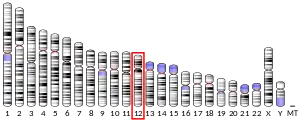| A2ML1 | |||||||||||||||||||||||||||||||||||||||||||||||||||
|---|---|---|---|---|---|---|---|---|---|---|---|---|---|---|---|---|---|---|---|---|---|---|---|---|---|---|---|---|---|---|---|---|---|---|---|---|---|---|---|---|---|---|---|---|---|---|---|---|---|---|---|
| Identifiers | |||||||||||||||||||||||||||||||||||||||||||||||||||
| Aliases | A2ML1, CPAMD9, alpha-2-macroglobulin like 1, p170, OMS | ||||||||||||||||||||||||||||||||||||||||||||||||||
| External IDs | OMIM: 610627 HomoloGene: 67167 GeneCards: A2ML1 | ||||||||||||||||||||||||||||||||||||||||||||||||||
| |||||||||||||||||||||||||||||||||||||||||||||||||||
| |||||||||||||||||||||||||||||||||||||||||||||||||||
| |||||||||||||||||||||||||||||||||||||||||||||||||||
| |||||||||||||||||||||||||||||||||||||||||||||||||||
| Wikidata | |||||||||||||||||||||||||||||||||||||||||||||||||||
| |||||||||||||||||||||||||||||||||||||||||||||||||||
Alpha-2-macroglobulin-like 1 abbreviated as α2ML1 is a protein that in humans is encoded by the A2ML1 gene.[3] α2ML1 is a large, 180 kDa protein found in the epidermis. It is able to the inhibit the chymotryptic activity of KLK7.[4]
Function
This gene encodes a member of the alpha-macroglobulin superfamily. The encoded protein acts as an inhibitor for several proteases, and has been reported as the p170 antigen recognized by autoantibodies in the autoimmune disease paraneoplastic pemphigus (PNP).[5] Alternative splicing results in multiple transcript variants.[3]
Clinical significance
Mutations in A2ML1 are associated to Noonan-like syndrome.[6]
References
- 1 2 3 GRCh38: Ensembl release 89: ENSG00000166535 - Ensembl, May 2017
- ↑ "Human PubMed Reference:". National Center for Biotechnology Information, U.S. National Library of Medicine.
- 1 2 "Entrez Gene: Alpha-2-macroglobulin-like 1".
- ↑ Galliano MF, Toulza E, Gallinaro H, Jonca N, Ishida-Yamamoto A, Serre G, Guerrin M (November 2005). "A novel protease inhibitor of the alpha2-macroglobulin family expressed in the human epidermis". J Biol Chem. 281 (9): 5780–5789. doi:10.1074/jbc.m508017200. PMID 16298998.
- ↑ Schepens I, Jaunin F, Begre N, Läderach U, Marcus K, Hashimoto T, Favre B, Borradori L (2010). "The protease inhibitor alpha-2-macroglobulin-like-1 is the p170 antigen recognized by paraneoplastic pemphigus autoantibodies in human". PLOS ONE. 5 (8): e12250. Bibcode:2010PLoSO...512250S. doi:10.1371/journal.pone.0012250. PMC 2923615. PMID 20805888.
- ↑ Vissers LE, Bonetti M, Paardekooper Overman J, Nillesen WM, Frints SG, de Ligt J, Zampino G, Justino A, Machado JC, Schepens M, Brunner HG, Veltman JA, Scheffer H, Gros P, Costa JL, Tartaglia M, van der Burgt I, Yntema HG, den Hertog J (2014). "Heterozygous germline mutations in A2ML1 are associated with a disorder clinically related to Noonan syndrome". Eur. J. Hum. Genet. 23 (3): 317–24. doi:10.1038/ejhg.2014.115. PMC 4326711. PMID 24939586.
External links
- Human A2ML1 genome location and A2ML1 gene details page in the UCSC Genome Browser.
Further reading
- Chapuis J, Hot D, Hansmannel F, Kerdraon O, Ferreira S, Hubans C, Maurage CA, Huot L, Bensemain F, Laumet G, Ayral AM, Fievet N, Hauw JJ, DeKosky ST, Lemoine Y, Iwatsubo T, Wavrant-Devrièze F, Dartigues JF, Tzourio C, Buée L, Pasquier F, Berr C, Mann D, Lendon C, Alpérovitch A, Kamboh MI, Amouyel P, Lambert JC (2009). "Transcriptomic and genetic studies identify IL-33 as a candidate gene for Alzheimer's disease". Mol. Psychiatry. 14 (11): 1004–16. doi:10.1038/mp.2009.10. PMC 2860783. PMID 19204726.
- Galliano MF, Toulza E, Jonca N, Gonias SL, Serre G, Guerrin M (2008). "Binding of alpha2ML1 to the low density lipoprotein receptor-related protein 1 (LRP1) reveals a new role for LRP1 in the human epidermis". PLOS ONE. 3 (7): e2729. Bibcode:2008PLoSO...3.2729G. doi:10.1371/journal.pone.0002729. PMC 2453322. PMID 18648652.
- Toulza E, Mattiuzzo NR, Galliano MF, Jonca N, Dossat C, Jacob D, de Daruvar A, Wincker P, Serre G, Guerrin M (2007). "Large-scale identification of human genes implicated in epidermal barrier function". Genome Biol. 8 (6): R107. doi:10.1186/gb-2007-8-6-r107. PMC 2394760. PMID 17562024.
This article incorporates text from the United States National Library of Medicine, which is in the public domain.

